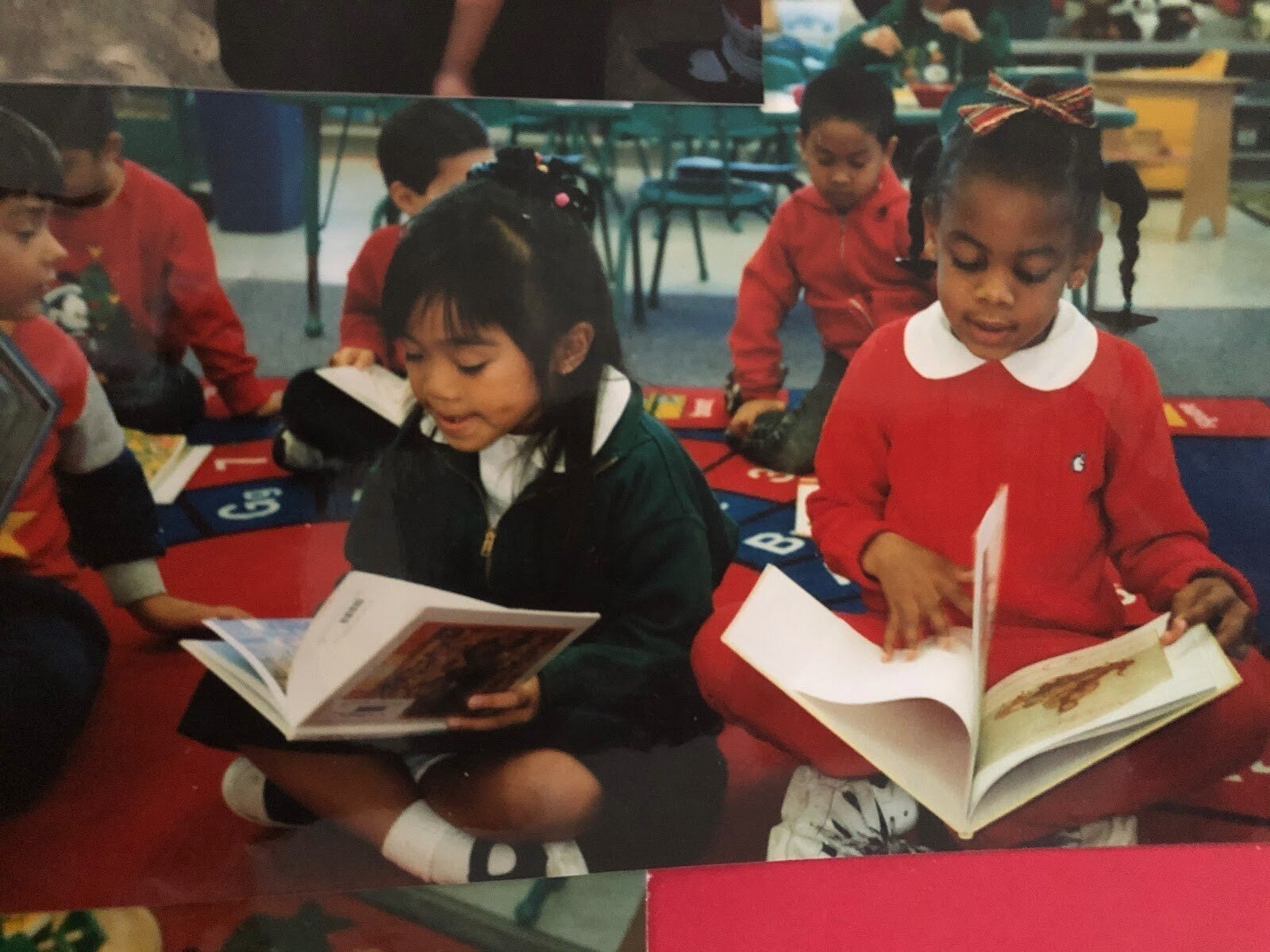Why Beloved Community: Alisha S. Keig
“I pledge allegiance to the flag of the United States of America…”
I remember learning the pledge in kindergarten. There was no greater rush than being asked to lead your class through our country’s oath except, of course, the greater honor of reciting it over the intercom in the principal’s office for the whole school to hear. Gosh, I loved this country and I loved the pledge most of all because of its final phrase, “With liberty and justice for all.” How incredibly fair.
Flash forward four years to fourth grade where we learned all about the branches of government. I decided then and there that I had to work for the government because clearly checks and balances made everything equal. Everything should be fair. That was my thing as a kid, and even now as an adult, I just can’t stand for something that isn’t fair.
I pledge allegiance to…actually nah.
Alisha S. Keig
As it goes, what we think is fair (or unfair) when we’re young typically has its distortions and limitations. As we learn about the world around us even the definition of fair starts getting a bit more complex. Here’s a perfect example: My mother moved us from sunny, perfect San Diego to Raleigh, North Carolina when I was 15 years old. I had never even heard of this city before nor did I want to live there. In my teenage audacity I declared this is inexcusably unfair, and thought I could use checks and balances to make my mom change her mind. I quickly learned she was president, supreme court, and congress in our house.
However, now that I’m twice that age, with a bit more wisdom, and as a homeowner myself, my mindset on that moment has shifted. Mom and I talk shop about housing markets, investments, and mortgages, and because of all this new information and experience, I fully comprehend (and celebrate) the money moves she made.
I wish I could say that all my fairness epiphanies came this full circle and were as neatly packaged.
Like many children who grow up in “blue” states, I learned that racism was the most unfair thing a person could ever do, but that it was typically a southern, “red” problem (another reason I was not feeling North Carolina). We also learned, however, that because racism was so unfair, it was virtually eliminated thanks to a hero named Dr. Martin Luther King Jr. and his famous speeches.
Unfortunately, I found out later, as we all eventually do, that I wasn’t told the whole truth about racism-which isn’t fair. I found out people misuse and decontextualize Dr. King’s speeches to silence people like me (young people, Black people, women, and others at the margin fighting for change) and discourage our involvement in civics. I found out how ill-equipped I was to face racism’s insidious nature, and I discovered how intricately woven it is in systems, institutions, organizations, and the foundation of a country I once pledged my allegiance to. Although I experienced the interpersonal racism I learned about as a kid, the type that spews out racial slurs and hangs confederate flags, the sting of those interactions passed quickly and left little scarring. The lasting effects of institutionalized and structural racism, however, have much more disastrous effects and higher consequences for my life:
Black children are suspended and expelled from school at 3 times the rate of White children.[1]
Black, American Indian, and Native Alaskan women are 2-3x more likely to die from pregnancy related causes than White women.[2]
Anti-Asian hate crimes have increased significantly (according to the NYPD by 1900%) since March 2020 because of scapegoating due to the pandemic.[3]
Latina and Black women have the highest unemployment rate bearing the brunt of the consequences of the pandemic at 9.1% and 8.4% respectively. White women have the lowest unemployment rate at 5.7%.[4]
Over the past five years, 80% of transgender homicides were Black women. Their average life expectancy is 35 years old.[5]
Black Americans have the lowest rate of homeownership at 42% compared to 72% for White Americans.[6]
Black and Latinx homeowners continue to face racism in situations like home appraisals. The difference in average home appraisals between neighborhoods that are majority-white and those that are predominantly Black and Latinx was $164,000 in 2015, up from about $86,000 in 1980.[7]
How disgustingly unfair. Or maybe I should say how inequitably designed.
That’s why I decided to join the Beloved Community. We unapologetically declare, “Nah, that’s not fair. Something must be done.” And then we go and do the work. We assist organizations with capacity building and scaffold support for them to learn the skill of operationalizing what can seem like the nebulous concepts of diversity, equity, and inclusion. All the while, we do the internal work of unlearning the socialization meant to distract and destroy us.
I haven’t recited the pledge of allegiance since 2015, my last year as a classroom teacher and the last year I left American exceptionalism unchecked in my life. Since then, it’s been endless unlearning, questioning, and interrogating to find out, to my constant disappointment, nothing here is really fair. However, I think I will pledge allegiance one more time with a bit of lyrical tweaking:
“I pledge allegiance to the BIPOC, pushed to the margins, in the divided states of America. And to the oppressed, we must take a stand. One revolution, under solidarity, with land back and reparations for all.”
[1] https://www.brookings.edu/research/2017-brown-center-report-part-iii-race-and-school-suspensions/
[2] https://www.cdc.gov/media/releases/2019/p0905-racial-ethnic-disparities-pregnancy-deaths.html
[3] https://www.huffpost.com/entry/anti-asian-hate-crimes-covid-19-help_n_60256eebc5b680717ee65142
[4] https://www.cnn.com/2021/01/08/economy/women-job-losses-pandemic/index.html
[5] https://www.marieclaire.com/politics/a28169056/black-trans-women-murdered/
[6] https://www.cnbc.com/2020/08/21/why-the-homeownership-gap-between-white-and-black-americans-is-larger-today-than-it-was-over-50-years-ago.html
[7] https://www.bloomberg.com/news/articles/2020-09-21/race-gap-in-home-appraisals-has-doubled-since-1980

